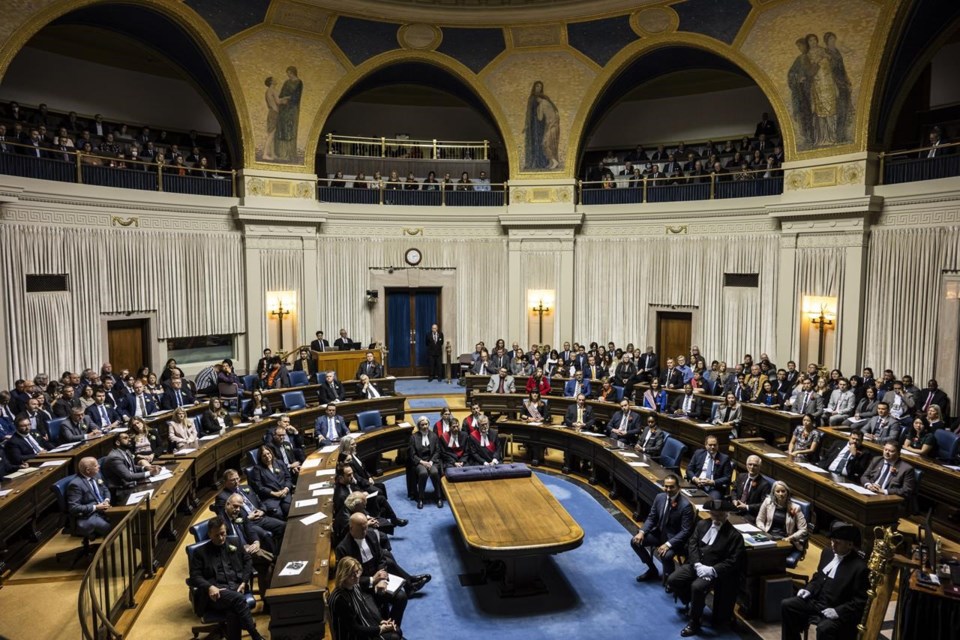WINNIPEG — Manitoba's NDP government is expected to put forward changes sought by labour groups, likely including a ban on replacement workers, as part of its agenda for the spring sitting that is to start Wednesday.
The NDP signalled its intentions shortly after winning the provincial election Oct. 3.
Labour and Immigration Minister Malaya Marcelino asked a group of labour and employer representatives in December for input on a potential new law that would ban companies from using replacement workers during strikes or lockouts. The aim was to prepare legislation for this spring.
The Manitoba Federation of Labour said the province is unlike Quebec and British Columbia in allowing companies to use fill-in employees
"Employers ... can simply ignore striking workers and hire people to come in," Kevin Rebeck, the federation's president, said Tuesday.
"They ignore the strike like it's not going on, rather than going back to the table and settling a fair deal."
But business groups have raised concerns that a ban would force employers to shut down during any strike or lockout. Previous NDP governments rejected calls for a ban on replacement workers and instead brought in measures to allow for binding arbitration if labour disruptions drag on.
The Manitoba Chambers of Commerce said the current labour environment is balanced.
"Anything that's going to tip that balance in favour of one side over the other is one that becomes problematic," the group's president, Chuck Davidson, said.
"We don't necessarily see the need for significant changes to happen."
The NDP government has also made it clear that it plans to make it easier for workers to join a union by reversing a change brought in by the former Progressive Conservative government.
The Tories did away with a provision that let workplaces forgo a secret-ballot vote and unionize immediately if 65 per cent of workers indicated their willingness by signing a union card. The Tories' law requires a secret-ballot vote in all cases.
Another expected change would repeal a law enacted by the Tories that restricted project labour agreements, which require non-unionized workers on large government projects to pay dues and be governed by the same requirements and benefits as their unionized counterparts.
The NDP government campaigned on being more friendly to labour following years of acrimony between unions and the former Tory government over wage freezes and spending restraint.
The spring sitting is scheduled to run until early June. The New Democrats have also promised to offer free prescription birth control, introduce mandatory Holocaust education in the school curriculum and reduce hospital wait times.
The NDP government's first budget is scheduled for April 2.
The Tories, now in Opposition, will start the spring sitting under interim leader Wayne Ewasko. He was selected after Heather Stefanson stepped down in January, and the party has yet to set a date for a leadership convention to replace her.
This report by The Canadian Press was first published March 5, 2024
Steve Lambert, The Canadian Press



